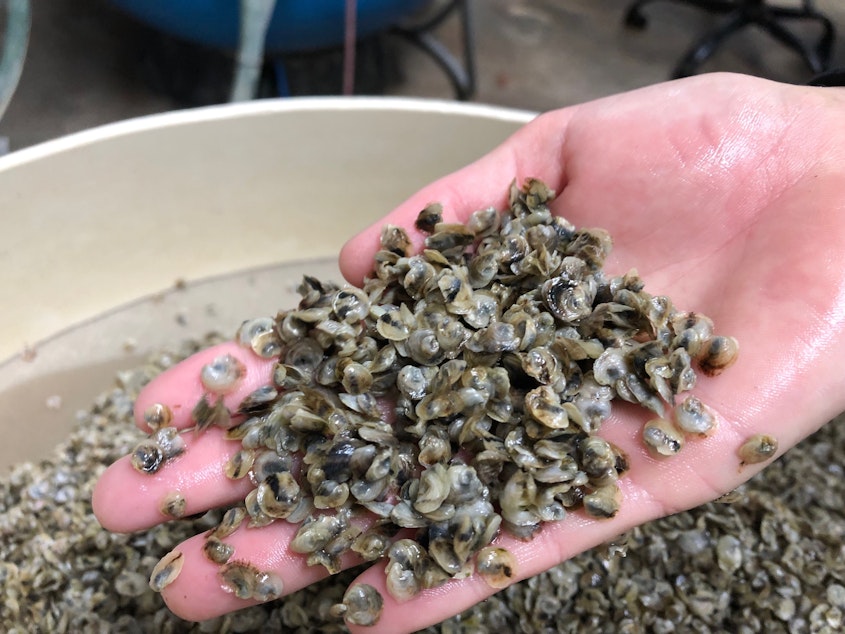Tribe looks to bring back oyster farming to Dungeness Spit

The Dungeness Spit, a few miles northwest of Sequim, could soon get some controversial neighbors: 80,000 bags of oysters, floating in the water, anchored to the floor of the Dungeness Bay.
This spot is also a national wildlife refuge visited every year by tens of thousands who come to view wildlife and see one of the longest sand spits in the world.
Now, the Jamestown-S’Klallam Tribe wants to reopen its old oyster farm in the bay. The tribe will know by Christmas whether it has the county permits it needs to move forward.
Dungeness Bay has been home to oyster farms since at least the 1960s, and the Jamestown-S’Klallam Tribe has been farming oysters there since 1990.
In 2005, the tribe closed the farm because the bay was so polluted with fecal coliform. That pollution came from agriculture, animal and pet waste, and leaking septic tanks.
For more than a decade, the tribe worked with the county and other partners to line irrigation ditches, repair septic systems, and install vegetation and filter strips until the bay’s water quality had improved enough that the tribe decided it was time to reopen its oyster farm.
Sponsored
“Tribal elders really wanted to see an opportunity for citizens to earn a living from the sea, most especially in Dungeness Bay,” said Hansi Hals, with the tribe’s Natural Resources Department.
“This was a way that elders just saw, like, ‘Let’s reconnect with our ancestral bay.'”
Critics of the plan say the bags anchored to the seafloor could damage the eelgrass beds that are home to juvenile salmon and steelhead, and that the presence of oyster bags and anchors, as well as employees in boats maintaining the farm, would damage the natural character of the shoreline and the wildlife refuge.
But Hals said the bags would be anchored far from eelgrass beds, employee presence would be minimal, and the farm could provide food for birds.
The tribe’s “vested interest is in stewardship and restoration and exceeding environmental standards,” Hals said, “because this is the tribe’s homeland and home waters.”
Sponsored
To reopen the farm, the tribe needs two permits from Clallam County.
The Clallam County Department of Community Development recommended that the hearing examiner deny the permits because the stretch of shoreline in question is supposed to be “natural" and the farm would conflict with that.
The hearing examiner will announce his decision by Monday, December 23.
After that, the Department of Ecology will review the decision, and it can be appealed.
The tribe also needs an additional permit from the Army Corps of Engineers.




